Awards
Protected: 25th Anniversary VSS Founders’ Awards
25th Anniversary VSS Lifetime Service Award
Monday, May 19, 2025, 12:30 – 2:30 pm, Talk Room 2
The 25th anniversary VSS Lifetime Service Award celebrates Hoover Chan’s longstanding contributions in uniting and serving the international vision science community.

Hoover Chan
Smith-Kettlewell Eye Research Institute and the University of California, San Francisco
VSS is proud and pleased to announce Hoover Chan as the recipient of the 25th Anniversary Lifetime Service Award. Hoover obtained his PhD in Physiological Optics from UC Berkeley in 1986, before carrying out postdoctoral research in color vision at City University of New York and spatial vision at the Smith-Kettlewell Eye Research Institute in the 1990s. He has since held a Professional Researcher position in the Department of Ophthalmology at UCSF alongside consultant roles in educational technology. His publications cover topics in color appearance, clinical electrophysiology and binocular vision, amongst others.
When the founder of CVNet, Peter Kaiser, retired from his role as postmaster in the early 1980s, Hoover Chan took over, first running the mailing list from Smith-Kettlewell, and then from his own resources; a self-acknowledged “labor of love”. As the keeper of the CVNET mailing list for the past 40 years, Hoover Chan has played an important but largely unsung role in binding the vision sciences community together, continuously providing the outlet for our research news, new academic positions, jobs in industry, philosophical and scientific discussions, conference announcements, special issue calls and obituaries, all things vision science. The long discursive threads are often highly educational and always entertaining (Hoover notes in particular the extended discussion of that “colour-switching dress” in March 2015, and one on remote stereoscopy in 2020; other favorites include tutorials in grammar and Latin).
VSS is delighted to honor Hoover Chan with the 25th Anniversary VSS Lifetime Service Award for his tireless, continuous maintenance of CVNet, with all the technical skills, scientific knowledge and diplomacy that role has commanded over the years, and the invaluable service to the international vision sciences community it has provided.
25th Anniversary VSS Lifetime Achievement Award
Monday, May 19, 2025, 12:30 – 2:30 pm, Talk Room 2
The 25th anniversary VSS Lifetime Achievement Award celebrates Tatiana (Tania) Pasternak’s exceptional contributions to vision science over her life, recognizing her compelling research achievements, intellectual leadership, and dedicated, deep service to the scientific community.
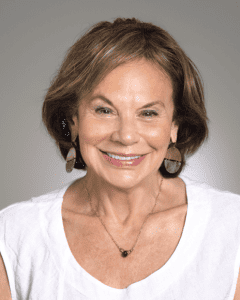
Tatiana (Tania) Pasternak
Professor Emeritus of Neuroscience, University of Rochester, Scientific Review Officer at the US National Institutes of Health
Tania is currently Professor Emeritus in the Department of Neuroscience and the Center for Visual Science at the University of Rochester (NY, USA), and she serves as Scientific Review Officer at the National Institutes of Health (USA). She first came to the USA on a NATO fellowship to work with Dr. William Hodos at the University of Maryland, while completing her graduate work at the Neurophysiological Institute, Copenhagen University (Denmark). After earning her PhD in Behavioral Physiology from Copenhagen University, she carried out her postdoctoral research under the guidance of Dr. John Lott Brown at the University of Rochester, in the Center for Visual Science, before assuming a faculty position at Rochester.
Tania has been at the forefront of almost every major development in visual neuroscience since the 1980s, her exceptional technical skills and scientific insight enabling her to carry out challenging experiments in both psychophysics and animal neurophysiology, making crucial contributions to the understanding of the neural underpinnings of motion perception, attention and memory, amongst other core visual functions.
Tania has been a powerful mentor and inspiring role model, particularly for women in science. At the University of Rochester, she directed the graduate course on integrative neuroscience for over two decades, helping to launch many successful careers that we so admire now. She has deployed her seemingly boundless energy in serving the scientific community through numerous editorial roles and national grant review panels, providing an important voice of judgment and reason through turbulent periods of funding regime changes. In her current role as Scientific Review Officer at the NIH National Institute of Neurological Disorders and Stroke, Tania’s experience and wisdom lend important ballast to initiatives in visual and cognitive neuroscience.
Tania has also played pivotal roles in the organization and management of major scientific societies that bind us all, including the Society for Neuroscience, ARVO, and, of course, VSS. Tania joined the first Board of Directors of VSS in 2002, after its founding in 2001 by Ken Nakayama and Tom Sanocki, and Tania not only continued to serve on the Board until 2008, but also was President of VSS for the 2006 and 2007 meetings. Two years as President shows remarkable fortitude and dedication.
For these immense and sustained contributions to vision science, in both fundamental understanding and practice, over a long and productive career, we are privileged to honor Tania Pasternak with the 25th anniversary VSS Lifetime Achievement Award.
Awards Session
We are pleased to honor our awardees at the VSS 2025 Awards Session.
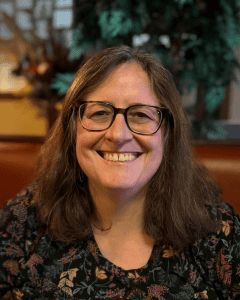
Davida Teller Award
Jody Culham
Professor of Psychology, Tier 1 Canada Research Chair in Immersive Neuroscience at Western University, Ontario
Congratulations to Jody Culham, the 2025 recipient of the Davida Teller Award.
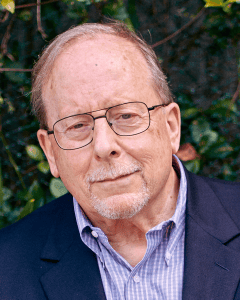
Ken Nakayama Medal for Excellence in Vision Science
J. Anthony Movshon
University Professor and Silver Professor; Professor of Neural Science and Psychology; Professor of Ophthalmology and of Neuroscience and Physiology, and investigator, Neuroscience Institute (NYU School of Medicine)
Congratulations to Tony Movshon, the 2025 recipient of the Ken Nakayama Medal for Excellence in Vision Science.
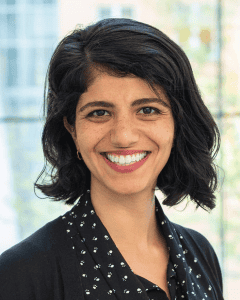
Elsevier/VSS Young Investigator Award
Leyla Isik
Clare Boothe Luce Assistant Professor, Department of Cognitive Science, Johns Hopkins University
Congratulations to Leyla Isik, the 2025 recipient of the Elsevier/VSS Young Investigator Award
Extraordinary VSS 25th Anniversary Awards

25th Anniversary Lifetime Achievement Award
Tatiana (Tania) Pasternak
Professor Emeritus of Neuroscience, University of Rochester | Scientific Review Officer, US National Institutes of Health
Congratulations to Tatiana Pasternak, recipient of the 25th Anniversary VSS Lifetime Achievement Award

25th Anniversary Lifetime Service Award
Hoover Chan
Smith-Kettlewell Eye Research Institute and the University of California, San Francisco
Congratulations to Hoover Chan, recipient of the 25th Anniversary VSS Lifetime Service Award
More 25th Anniversary Awards to be Announced Soon!
Recipients of these awards and grants will be recognized at the awards session.
- FABBS Early Career Impact Award
- John I. Yellott Travel Awards
- NEI Travel Grants
- Elsevier/Vision Research International Travel Awards
- Undergraduate Travel Grants
Our Graphics Competition Winners will also be recognized.
2025 Elsevier/VSS Young Investigator Award – Leyla Isik
Monday, May 19, 2025, 12:30 – 2:30 pm, Talk Room 2
The Vision Sciences Society is honored to present Leyla Isik with the 2025 Elsevier/VSS Young Investigator Award.
The Elsevier/VSS Young Investigator Award, sponsored by Vision Research, is given to an early-career vision scientist who has made outstanding contributions to the field. The nature of this work can be fundamental, clinical, or applied. The award selection committee gives highest weight to the significance, originality and potential long-range impact of the work. The selection committee may also take into account the nominee’s previous participation in VSS conferences or activities, and substantial obstacles that the nominee may have overcome in their careers. The awardee is asked to give a brief presentation of her/his work and is required to write an article to be published in Vision Research.
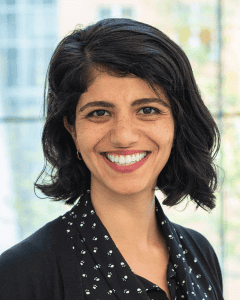
Leyla Isik
Clare Boothe Luce Assistant Professor, Department of Cognitive Science, Johns Hopkins University
The 2025 Elsevier/VSS Young Investigator Award goes to Professor Leyla Isik for her important contributions to the scientific study of social vision. Dr. Isik is the Clare Boothe Luce Assistant Professor in the Department of Cognitive Science at Johns Hopkins University. After completing her undergraduate degree in Biomedical Engineering at Johns Hopkins, Dr. Isik earned her PhD with Tomaso Poggio at MIT and then conducted postdoctoral research at MIT and Harvard Medical School with Nancy Kanwisher and Gabriel Kreiman in the Center for Brains, Minds, and Machines.
Dr. Isik uses a broad array of neuroscientific and computational methods to study how humans recognize and understand social information from visual input, with a focus on action and social-interaction recognition. In her postdoctoral research, she identified a region in the human superior temporal sulcus (STS) that is selectively engaged when viewing others’ social interactions. Since starting her lab, she has shed new light on these neural processes during natural viewing, showing that social-interaction recognition relies on hierarchical visual computations similar to those used in scene and object recognition but with an additional reliance on dynamic and relational information. Another line of research in her lab has demonstrated how integrating these insights from human cognition can help build better, human-aligned AI vision models. Dr. Isik has received awards and funding from the NIH, NSF, and Google, and she is a dedicated mentor to students and postdocs in her lab. Dr. Isik’s innovative and rigorous research expands vision science into exciting new domains in social cognition.
Seeing social interactions
Humans see the world in rich social detail. We effortlessly recognize not only objects and people in our environment, but also social interactions between people. The ability to perceive and understand others’ interactions is critical to function in our social world, yet the underlying neural computations remain poorly understood. In this talk, I will first argue that social interaction perception should be studied with the same computational vision tools that are now widely applied to other areas of vision, like scene and object recognition. I will then present research from our lab using naturalistic neuroimaging and behavior to show that social interaction information is extracted hierarchically by the visual system along the recently proposed lateral visual pathway. However, unlike scene and object recognition, current AI vision models do a poor job of matching human behavior and neural responses to these dynamic, social scenes. Finally, I will describe our efforts to close this gap by instantiating insights from human social vision into novel neural network models. Together, this research suggests that social interaction recognition is a core human ability that relies on specialized, structured visual representations.
Dr. Isik will speak during the Awards session.
2025 Davida Teller Award – Jody Culham
Monday, May 19, 2025, 12:30 – 2:30 pm, Talk Room 2
The Vision Sciences Society is delighted and honored to award the 2025 Davida Teller Award to Dr. Jody Culham, a distinguished leader whose groundbreaking research has significantly advanced our understanding of how perception and action are integrated in the human brain.
Congratulations to Jody Culham, the thirteenth recipient of the Davida Teller Award. The Teller Award was created to honor the late Davida Teller’s exceptional scientific achievements, commitment to equity, and strong history of mentoring. The award is given to a female vision scientist in recognition of her exceptional, significant, or lasting contributions to the field of vision science.
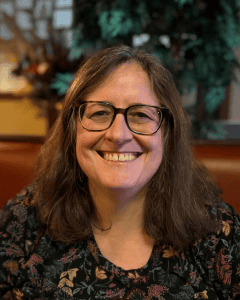
Jody Culham
Professor of Psychology, Tier 1 Canada Research Chair in Immersive Neuroscience at Western University, Ontario
Dr. Jody Culham is a Professor in the Department of Psychology at Western University, Ontario, where she holds a prestigious Tier 1 Canada Research Chair. After earning her PhD at Harvard University under the guidance of Drs. Patrick Cavanagh and Nancy Kanwisher, she completed postdoctoral research with Dr. Mel Goodale at Western. From the outset, Dr. Culham’s innovative approach—combining psychophysics, neuropsychology, and neuroimaging— and direct pursuit of questions of lasting importance, have profoundly reshaped the field.
Dr. Culham was among the first to develop creative functional magnetic resonance imaging (fMRI) paradigms that allowed real-world objects and actions to be studied with neuroimaging. This methodological breakthrough has been a keystone in her approach of “immersive neuroscience”, now expanding to include virtual reality and video games. The approach has significantly advanced cognitive neuroscience by demonstrating how real-world interactions elicit distinct and more robust neural responses compared to traditional proxies like static images and simulated actions. Her foundational studies of the human parietal cortex have illuminated its critical role in planning and executing visually guided actions.
Beyond her substantial scientific achievements—including more than 100 influential publications, over 14,000 citations, and numerous prestigious awards such as the E.W.R. Steacie Memorial Fellowship—Dr. Culham is celebrated as a truly masterful mentor. Throughout her career, she has trained numerous graduate students and postdoctoral researchers who have progressed into influential positions in academia and industry. Known for her unwavering support, clear and approachable teaching style, and personal warmth, she has significantly influenced the lives and careers of her trainees. Her widely used educational resources, notably her internationally acclaimed website “fMRI for Newbies,” have provided invaluable guidance to countless early-career researchers worldwide.
Jody Culham has also gone above and beyond for the good of the broader vision sciences community. A dedicated member of the Vision Sciences Society since its inception, she has served in many capacities including Board Member and President, demonstrating outstanding leadership during critical periods, such as guiding the society back to successful in-person meetings post-pandemic. Her extensive contributions extend to other prominent organizations, including roles with the Organization for Human Brain Mapping and editorial positions at eLife and Experimental Brain Research. Jody’s generosity, infectious enthusiasm, and commitment to scientific rigor and community-building epitomize the values represented by the Davida Teller Award.
The Vision Sciences Society is proud to award Dr. Jody Culham the Davida Teller Award in 2025, recognizing her groundbreaking contributions to vision science, her pioneering research methodologies, and her extraordinary dedication to mentorship and community leadership.
Dr. Culham will speak during the Awards session.
2025 Ken Nakayama Medal for Excellence in Vision Science – J. Anthony Movshon
Monday, May 19, 2025, 12:30 – 2:30 pm, Talk Room 2
The Vision Sciences Society is honored to present J. Anthony Movshon with the 2025 Ken Nakayama Medal for Excellence in Vision Science.
The Ken Nakayama Medal is in honor of Professor Ken Nakayama’s contributions to the Vision Sciences Society, as well as his innovations and excellence in the domain of vision sciences.
The winner of the Ken Nakayama Medal receives this honor for high-impact work that has made a lasting contribution in vision science in the broadest sense. The nature of this work can be fundamental, clinical or applied.
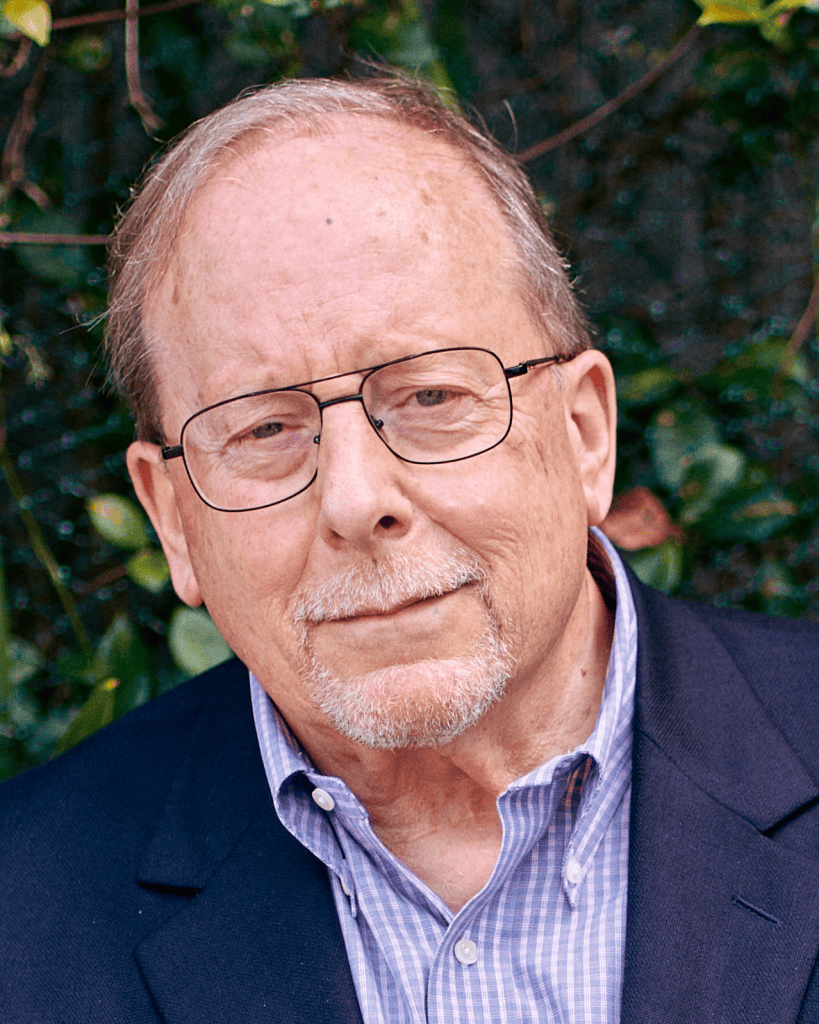
J. Anthony Movshon
University Professor and Silver Professor; Professor of Neural Science and Psychology; Professor of Ophthalmology and of Neuroscience and Physiology, and Investigator, Neuroscience Institute (NYU School of Medicine)
Tony Movshon has been selected as this year’s recipient of the Ken Nakayama Medal for Excellence in Vision Science. This honor recognizes his singular synthesis of the three primary strands of modern vision research—psychophysics, physiology and computational theory—and tireless leadership of the vision science community. Tony is known for foundational research transforming our understanding of the mechanisms representing the form, texture, and motion of objects, how these mechanisms contribute to perceptual judgments and guidance of actions, and how visual experience influences development of these mechanisms. His quantitative analysis of the linearity of simple and complex receptive fields led to formal insights like normalization. His investigation of the nature of motion transparency and coherence led to a cascade model explaining visual appearances. His rigorous use of signal detection theory linked physiological measurements to psychophysical judgments and gaze control. His pioneering studies of visual system development under normal and deprived conditions supported clinical insights into amblyopia.
Tony is also recognized as an exceptionally impactful mentor and role model, who has trained dozens and influenced generations of scientists. Tony’s contributions to the vision science community have been amplified by his service on countless scientific editorial boards and grant review committees and by his role advising, among others, the McKnight Endowment Fund for Neuroscience, the Simons Foundation, the Kavli Institute for Systems Neuroscience, the Gatsby Computational Neuroscience Unit, and the Max Planck Society. He established the Center for Neural Science at NYU, the Cold Spring Harbor Laboratory summer course Computational Neuroscience: Vision, and the Annual Review of Vision Science. He was elected to the Board of Directors of VSS in 2007 and served as President.
Tony earned a B.A. at Cambridge University in 1972 and continued there to earn a Ph.D. under the supervision of Colin Blakemore in 1975. Since 1975 he has been a faculty member at New York University. Tony’s research contributions have been recognized by the Young Investigator Award from the Society for Neuroscience, the Rank Prize in Optoelectronics, and the Champalimaud Vision Award. He has been elected a Fellow of the American Association for the Advancement of Science and of the Association for Psychological Science and member of the National Academy of Sciences, the American Academy of Arts and Sciences, and the Royal Society of London.
VSS 2025 Travel Grant Application
Please Log In to your MyVSS Account to determine if you are eligible to apply for a Travel Grant.
2024 Undergraduate Travel Grant Application
The Travel Grant Application has now been closed. You will be notified of acceptance by April 11, 2024.
